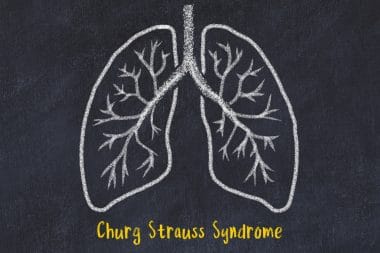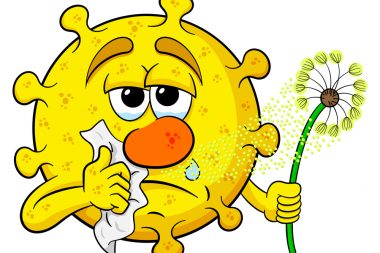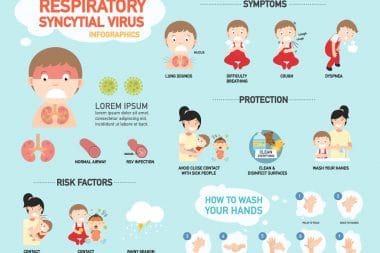Allergy is a term used in describing an unusual bodily reaction to a substance that has no distinctive or noticeable effect on other humans. According to studies, about 17 out of every 100 Americans are allergic, or hypersensitive, to some substances which are known to cause unusual reactions.
Allergens, range from various irritants, such as pollens, mold spores, insect venoms, animal dander, and house dust. There are some who are allergic to substances in soap and some who will have a reaction to the smell of a flower.
Common types of allergies:
- Food Allergies – ignited by certain food types
- Anaphylaxis – triggered by drugs, food, or insect stings
- Respiratory Allergies – triggered by air born allergens
- Contact Allergies – triggered by skin-affecting allergens
- Insect Sting Allergies – triggered by insect venom
Symptoms and Signs of Common Allergies
Since each person may have unique reactions your symptoms might vary. Consult your doctor if the symptoms become persistent or severe.
Food Allergies
Symptoms of an allergy caused by certain food types usually happen within some minutes after you ingested food allergens. The symptoms may only happen to areas around the lips, mouth, and digestive tract, or could also involve other body areas. Foods that commonly result in allergic reactions are eggs, nuts, milk, fish, soy, shellfish, and wheat.
Mild Symptoms:
- Tingling, itching, or swelling of your mouth, tongue, lips, or throat
- Tightness feeling in your throat
- Difficulty speaking or swallowing
- Nausea
- Indigestion and abdominal cramps
- Vomiting and diarrhea
- Skin rashes
- Coughing, congestion, wheezing, or sneezing
- Runny, stuffy, or itchy nose
Severe Symptoms:
- Breathing difficulties
- Sweating, dizziness, and faintness
- Rapid or sudden heart rate increase
- Sudden inability or hoarseness to speak
- Extreme and sudden facial itching and swelling
- Anaphylaxis
Anaphylaxis
Anaphylaxis is a severe, sudden, and potentially fatal reaction that has symptoms affecting various body areas. Symptoms commonly manifest very quickly after some exposure to allergens and may include extreme itching all over your body, total swelling of the body, respiratory distress, swelling, and may cause shock that is life endangering. Anaphylaxis requires urgent medical attention. The reaction is most commonly a result of drug, insect sting, or food allergies.
Symptoms include:
- Skin flushing
- Itching or tingling around your body
- Mouth swelling as well as in the throat area
- Difficulty breathing and swallowing
- Tightening of your chest
- Agitation, confusion, or lightheadedness
- Nausea, vomiting, abdominal cramps, or diarrhea
- Irregular heartbeat
In some severe cases shock might occur. The swelling of your body’s bronchial tissues might cause you to choke before losing consciousness. An abrupt drop in your blood pressure as a result of dilated blood vessels might also cause you to lose consciousness.
In cases that cause anaphylactic shock, it is necessary that you get treatment immediately. Without prompt medical attention, anaphylactic shock might prove fatal.
Respiratory Allergies
Symptoms of respiratory allergies frequently occur after a few hours of exposure and are usually trigged by allergens that are airborne like animal dander, plant pollens, mold spores, and dust mites.
Mild Symptoms:
- Wheezing or coughing
- Sneezing
- Itchy throat or nose
- Postnasal drip
- Smell sense is impaired
- Hoarseness in the throat
- Congestion
- Red, itchy, swollen, or watery eyes
- Clogged or runny nose with thin and clear mucus
- Conjunctivitis
- Fatigue
Severe Symptoms:
- Shortness and difficulty in breathing
- Chest tightness and pain
Contact Allergies
Symptoms that occur as a result of contact allergies usually happen within a few minutes after your allergen exposure, although there are symptoms that may occur after several hours. Common allergens are poison ivy and poison oak, rubber, nickel, latex, preservatives, dyes, fragrances, medications, and cosmetics like perfume and hair dye. Nickel, a metal frequently used in buttons, jewelry, hairpins, zippers, metal clips and snaps, is the frequent source of the allergy. Sun exposure might also give you reactions.
Mild Symptoms:
- A bumpy or itchy rash
- Fluid-filled bumps on your skin
- Swelling or redness of your skin
- Hives
- Eczema
Severe Symptoms:
- Anaphylaxis
Insect Sting Allergies
Symptoms caused by insect sting allergies usually happen after a few minutes after you got stung, although there may be symptoms happening after some hours. Insect venoms cause these allergic reactions, like those from wasps, bees, hornets, fire ants, and yellow jackets.
Mild Symptoms:
- Pain, swelling, and itching at the area of the sting or at times, over larger body areas such as the forearm or entire hand
- Fever
- Fatigue or nausea
- Hives, swelling, and itching in body areas apart from the area that got stung
- Chest tightness
- Difficulty of breath
- Tongue swelling
Severe Symptoms:
- Anaphylaxis
It is of paramount importance to know that many allergies have similar symptoms with other conditions and diseases. That is why it would be best to consult your doctor to assess you condition and get a proper diagnosis.






